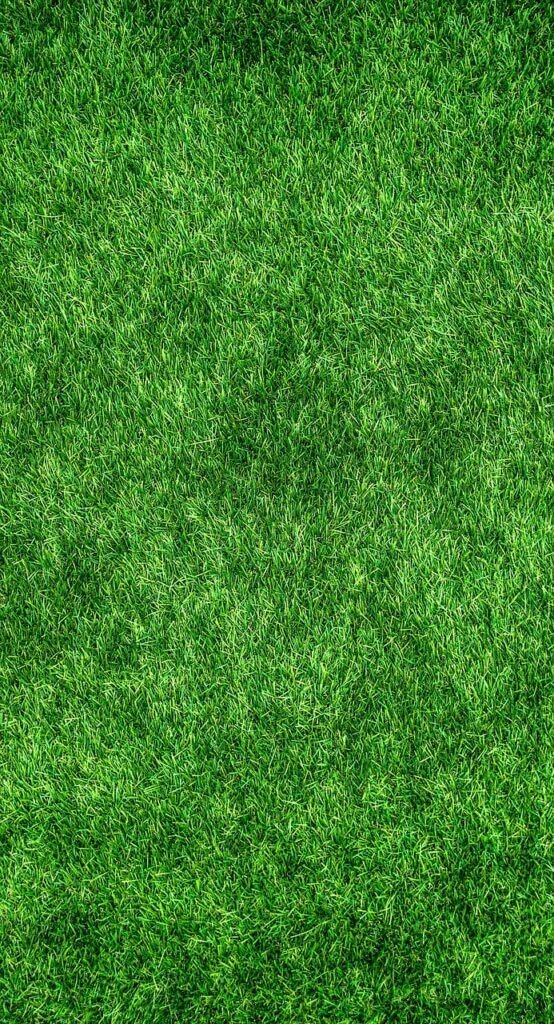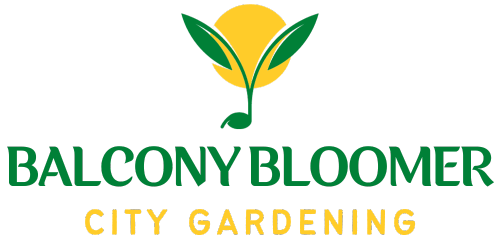So you’ve decided to embark on the exciting adventure of balcony gardening! Whether you have a green thumb or are just starting to discover your love for plants, quality soil is a vital component for success. In order to create a thriving balcony garden, there are a few key considerations you need to keep in mind when it comes to your soil. From choosing the right type of soil to ensuring proper drainage and nutrients, finding the perfect balance will be essential to the health and growth of your plants. Join us as we explore the important factors that contribute to soil quality in balcony gardening and set you up for a flourishing garden oasis right at your fingertips.

Soil Composition
Drainage
One of the key considerations for soil quality in balcony gardening is the drainage of the soil. Proper drainage is crucial to ensure that excess water is able to escape from the soil. Without proper drainage, the soil can become waterlogged, leading to root rot and other issues. To improve drainage, you can use a well-draining potting mix or add drainage materials such as gravel or perlite to the soil.
Texture and Structure
The texture and structure of the soil also play a vital role in determining its quality. The texture refers to the size of the soil particles, while the structure refers to how the particles are arranged. In balcony gardening, it is important to have a soil texture that allows for good root penetration and air circulation. Sandy soil tends to drain quickly but may lack nutrients, while clay soil retains water but can become compacted. Balancing the texture and structure of the soil can be achieved by adding organic matter such as compost.
Nutrient Content
Ensuring that the soil has an adequate nutrient content is essential for the healthy growth of plants in balcony gardens. Nutrients such as nitrogen, phosphorus, and potassium are essential for plant growth and development. You can assess the nutrient content of the soil through soil testing and then make adjustments by adding organic fertilizers or nutrient-rich amendments. Regularly monitoring and maintaining the nutrient content of the soil will help to promote vibrant and thriving plants.
pH Level
Importance of pH
The pH level of the soil refers to its acidity or alkalinity and plays a crucial role in determining the availability of nutrients to plants. Different plants have different pH preferences, so it is important to ensure that the soil pH matches the needs of the plants in your balcony garden. A balanced soil pH allows for optimal nutrient uptake and promotes healthy growth. Acidic soil can be adjusted by adding lime, while alkaline soil can be corrected with amendments like sulfur or peat moss.
Testing pH Levels
To determine the pH of your soil, you can conduct a simple soil test using a pH testing kit or by sending a sample to a soil testing laboratory. This will give you an accurate measurement of the soil’s pH level. Testing the pH regularly is important as it can change over time due to factors such as fertilizer application or the breakdown of organic matter. By knowing the pH of your soil, you can make the necessary adjustments to create an ideal growing environment for your plants.
Adjusting pH Levels
If the pH of your soil is not within the preferred range for your plants, you can take steps to adjust it. For acidic soil, adding lime can help raise the pH, making it more alkaline. To lower the pH of alkaline soil, you can incorporate organic matter such as compost or peat moss. It’s important to note that adjusting the pH of the soil is a gradual process and should be done incrementally to avoid shocking the plants. Regularly monitoring and adjusting the pH levels will help maintain the optimal growing conditions for your balcony garden.

Organic Matter
Benefits of Organic Matter
Incorporating organic matter into the soil of your balcony garden provides numerous benefits. Organic matter improves soil structure, enhances drainage, and aids in nutrient retention. It also encourages the growth of beneficial soil microorganisms, which help break down organic matter and make nutrients more available to plants. Additionally, organic matter adds valuable nutrients to the soil, acting as a slow-release fertilizer. It can also increase the soil’s water-holding capacity, reducing the need for frequent irrigation.
Adding Compost
One of the easiest ways to introduce organic matter to your balcony garden soil is by adding compost. Compost is a nutrient-rich soil amendment that consists of decomposed organic materials such as food scraps, yard waste, and leaves. It improves soil fertility, enhances moisture retention, and promotes the growth of beneficial microorganisms. To add compost to your soil, simply mix it into the top few inches of the soil or use it as a top dressing around your plants. Over time, the compost will break down, enriching the soil and providing a sustainable source of nutrients.
Mulching
Mulching your balcony garden is another effective way to incorporate organic matter into the soil. Mulch acts as a protective layer that retains moisture, controls temperature fluctuations, and suppresses weed growth. Organic mulches such as straw, wood chips, or shredded leaves slowly break down, releasing nutrients into the soil. They also provide habitat for beneficial insects and help prevent soil erosion. To mulch your balcony garden, apply a layer of organic mulch around your plants, making sure to leave a gap around the plant stem to prevent rot.
Water Retention
Importance of Water Retention
Ensuring proper water retention in your balcony garden soil is essential for the health and vitality of your plants. Adequate water retention allows the plants to access moisture between watering sessions, reducing the risk of drought stress. It also helps to minimize the frequency of irrigation and the amount of water wasted through runoff. Balancing water retention with good drainage is important to prevent overwatering and the development of root rot.
Using Water-Retaining Materials
To improve water retention in your balcony garden soil, you can incorporate water-retaining materials such as vermiculite or coconut coir. These materials have the ability to absorb and retain water, releasing it gradually to the plants’ roots. Mixing these water-retaining materials into the soil or using them as a component in your potting mix can help ensure consistent moisture levels in the soil. This is especially beneficial in areas with hot and dry climates or for plants that have high water requirements.
Irrigation Techniques
Along with using water-retaining materials, utilizing proper irrigation techniques is crucial for maintaining optimal moisture levels in your balcony garden soil. The frequency and duration of watering will depend on factors such as plant type, weather conditions, and soil drainage. It is important to water deeply, allowing the water to penetrate the root zone, rather than shallowly and frequently. Additionally, watering in the early morning or late evening helps to minimize evaporation and ensures that the plants have adequate moisture during the day.

Drainage
Ensuring Proper Drainage
Proper drainage is essential for the overall health of your plants and the prevention of waterlogging. Waterlogged soil can lead to root rot, nutrient deficiencies, and the suffocation of the plant’s root system. To ensure proper drainage in your balcony garden, choose pots or containers with drainage holes to allow excess water to escape. Elevating the pots on bricks or using pot feet can also improve drainage by preventing the pots from sitting directly in water.
Using Drainage Layers
In addition to using pots with drainage holes, you can create drainage layers within your containers to further enhance the drainage of your balcony garden soil. Adding a layer of rocks or pebbles at the bottom of the pot creates a space for excess water to collect, preventing it from saturating the soil. This drainage layer helps to maintain a balance between water retention and drainage for your plants.
Avoiding Waterlogging
Waterlogging can be avoided by ensuring that excess water is able to drain freely from your pots or containers. Avoiding overwatering is key to preventing waterlogging. Ensure that your pots have proper drainage and that the soil is not compacted, as this can inhibit drainage. It is important to monitor the moisture levels of the soil and water only when needed. By maintaining proper drainage practices, you can avoid the negative consequences of waterlogged soil and promote healthy plant growth.
Pests and Diseases
Identifying Common Pests and Diseases
Another important consideration for soil quality in balcony gardening involves identifying and managing pests and diseases. Common pests in balcony gardens include aphids, mealybugs, and spider mites, while diseases such as powdery mildew and damping-off can affect the plants. Regularly inspecting your plants for signs of damage, discoloration, or unusual growth patterns can help identify potential pest or disease issues early on. Proper identification allows for prompt and effective treatment or prevention strategies.
Preventing and Managing Infestations
Preventing and managing pest and disease infestations in your balcony garden soil can be achieved through various methods. One preventive measure is practicing good sanitation, removing any plant debris or fallen leaves that can harbor pests or diseases. Integrated pest management techniques, such as mechanical control or the use of beneficial insects, can also be employed to minimize infestations. If necessary, organic or synthetic pesticides can be used as a last resort, following the recommended application instructions and taking precautions to minimize harm to beneficial organisms.
Choosing Resistant Plant Varieties
Selecting plant varieties that are resistant to common pests and diseases can help mitigate the risk of infestations in your balcony garden soil. Researching and choosing plants that have a natural resistance to specific pests or diseases can significantly reduce the need for chemical interventions. Additionally, planting a diverse range of crops and companion planting can enhance natural pest control by attracting beneficial insects or repelling pests. By incorporating pest and disease-resistant plant varieties, you can decrease the likelihood of soil-related issues and establish a healthy and resilient balcony garden.
Soil Contamination
Sources of Contamination
Soil contamination can occur due to various sources, with the most common ones in balcony gardening being air pollution, contaminated water, or the use of contaminated soil amendments. Air pollution can deposit heavy metals and other pollutants onto the soil surface, while contaminated water used for irrigation can introduce harmful substances. Additionally, using compost or other amendments that come from contaminated sources can result in soil contamination. Being aware of these potential sources of contamination is essential to maintain the quality of your balcony garden soil.
Testing for Soil Contamination
Testing the soil for contamination is important to assess the presence of harmful substances that can impact plant growth and potentially pose health risks. Soil testing kits or professional laboratory analysis can help identify the presence and levels of contaminants, including heavy metals, pesticides, or volatile organic compounds. Regularly testing your balcony garden soil will provide valuable information to take necessary remediation actions and ensure a safe growing environment for your plants.
Remediation Techniques
If soil contamination is detected, several remediation techniques can be implemented to mitigate its effects. Phytoremediation, which involves using specific plants to absorb and break down contaminants, can be employed in some cases. Soil amendments such as activated charcoal or compost can also help in reducing the bioavailability of contaminants in the soil. In severe cases, removing and replacing the contaminated soil may be necessary, ensuring that the new soil used is uncontaminated. Engaging with professional assistance or seeking guidance from local authorities can provide further guidance on the appropriate remediation techniques to employ.
Microorganisms and Beneficial Insects
Promoting Soil Microorganisms
Microorganisms play a fundamental role in maintaining soil health and fertility. In balcony gardening, promoting the growth and activity of beneficial soil microorganisms is crucial for optimal plant growth. Adding organic matter such as compost or using organic fertilizers can provide a food source for these microorganisms. Providing adequate moisture, proper aeration, and avoiding the excessive use of pesticides can also create a favorable environment for the growth of beneficial microorganisms. These microorganisms help break down organic matter, release nutrients, and enhance soil structure.
Attracting Beneficial Insects
Beneficial insects are natural allies in the battle against pests in balcony gardening. Attracting these insects can help control pest populations and reduce the need for chemical pesticides. To attract beneficial insects, you can incorporate flowering plants in your balcony garden, which provide nectar and pollen sources for these insects. Additionally, creating habitat features such as insectary plants or installing insect hotels can provide shelter and breeding grounds for beneficial insects. By attracting and supporting these helpful allies, you can maintain a healthy and balanced ecosystem in your balcony garden.
Biocontrol Methods
Biocontrol methods involve using living organisms to control pests in a natural and sustainable way. In balcony gardening, biocontrol methods can be employed to manage pest populations while minimizing harm to beneficial insects and the environment. Examples of biocontrol methods include introducing predatory insects that feed on pests, using microbial pesticides derived from naturally occurring microorganisms, or employing physical barriers to prevent pest access. Biocontrol methods provide an effective alternative to chemical pesticides, contributing to the overall soil quality and the long-term health of your balcony garden.
Nutrient Management
Understanding Nutrient Needs
Understanding the nutrient needs of your plants is essential for proper soil management in balcony gardening. Different plants have varied nutrient requirements, and supplying them with the necessary nutrients is crucial for their growth and productivity. Nitrogen, phosphorus, and potassium are the primary macronutrients required by plants, while secondary nutrients and micronutrients are also necessary in smaller quantities. By researching the specific nutrient requirements of the plants in your balcony garden, you can ensure that the soil is adequately enriched to meet their needs.
Fertilizer Selection and Application
Selecting the right fertilizer and applying it correctly is important for effective nutrient management in your balcony garden. There are two primary types of fertilizers: organic and synthetic. Organic fertilizers, such as compost or manure, are derived from natural sources and release nutrients slowly over time. They improve soil fertility and microbial activity. Synthetic fertilizers are manufactured and provide nutrients in a readily available form. It is essential to follow the manufacturer’s instructions for application rates and timing to avoid over-fertilization, which can harm plants and contribute to soil pollution.
Organic vs. Synthetic Fertilizers
The choice between organic and synthetic fertilizers depends on personal preferences, gardening practices, and environmental considerations. Organic fertilizers provide long-term soil improvement, enhance microbial activity, and have minimal environmental impact. They promote slow and steady growth, resulting in healthier plants. Synthetic fertilizers offer quick nutrient availability and precise control over nutrient ratios. However, they can be more prone to leaching and may negatively impact soil microorganisms and long-term soil health. Balancing the use of organic and synthetic fertilizers can help strike a sustainable approach to nutrient management in your balcony garden.
Soil Maintenance
Regular Soil Monitoring
Regularly monitoring the soil in your balcony garden is crucial for maintaining its quality and ensuring optimal plant growth. This includes observing the soil’s moisture levels, checking for any signs of nutrient deficiencies or excesses, and assessing the overall health and vigor of your plants. Soil moisture can be monitored by sticking your finger into the soil or using moisture meters. Visual cues such as leaf discoloration or stunted growth can indicate nutrient imbalances. By monitoring the soil on a regular basis, you can identify and address any issues promptly, preventing potential problems in your garden.
Amending Soil as Needed
Amending the soil as needed is an important part of soil maintenance. As plants grow and consume nutrients, the nutrient levels in the soil can become depleted. Adding organic matter such as compost, worm castings, or well-rotted manure can replenish essential nutrients and improve soil structure. Adjusting the soil pH, if necessary, can also be done through the addition of lime or organic amendments. Regularly amending the soil ensures that it remains fertile and provides the necessary conditions for healthy plant growth in your balcony garden.
Crop Rotation
Crop rotation is a beneficial practice in balcony gardening to prevent soil depletion and the buildup of pests and diseases. Planting the same crops in the same location year after year can deplete specific nutrients from the soil and increase the risk of pest and disease infestations. By rotating your crops each season, you can ensure that different plant families are grown in different areas of your balcony garden. This helps balance nutrient usage and disrupts pest and disease cycles, leading to healthier soil and more productive plants in the long run.
In conclusion, soil quality is a critical consideration for successful balcony gardening. Maintaining proper drainage, optimizing soil texture and structure, and ensuring adequate nutrient content are essential for plant health and productivity. Monitoring the soil’s pH level and adjusting it as needed, incorporating organic matter, and promoting water retention all contribute to creating a healthy growing environment. Proper drainage, pest and disease management, and soil contamination prevention are crucial aspects of soil quality management. Encouraging beneficial microorganisms and insects, effectively managing nutrient levels, and regularly monitoring and amending the soil help to maintain its fertility and overall health. By following these key considerations and implementing appropriate soil maintenance practices, you can create a thriving balcony garden and enjoy the beauty and satisfaction of growing plants in a limited space.


